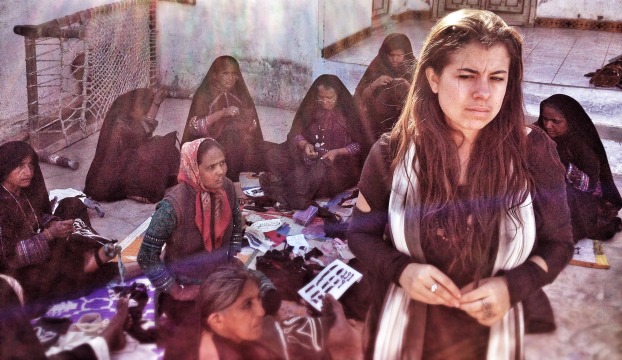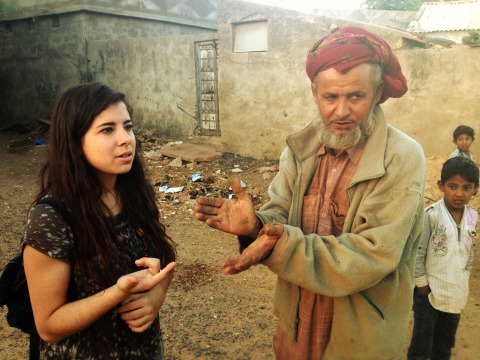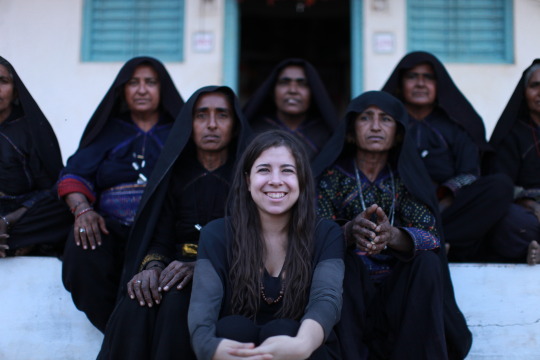Canadian Designer Laura Siegel Chats About Ethical Fashion

With April 24 marking the second anniversary of the tragic Rana Plaza garment factory collapse in Savar, Bangladesh, Canadian designer Laura Siegel and director Jennifer Sharpe have partnered to produce a new documentary about the global garment industry. The documentary, Appreciable, airs tonight at 8 p.m. ET on MTV, Bravo, M3, and E! In honour of Appreciable’s release, we chatted with the Toronto-born, New York City-based designer about the film, shopping for ethical and sustainable fashion and her mark’s project with global artisans.
Real Style: How was your experience being featured in the Appreciable documentary and effective with director Jennifer Sharpe?
Laura: It was a lot of fun to be effective with Jenn and introducing her to the people I work with. She did such a splendid job sharing and telling their tales.
Real Style: What was the largest challenge with being caught up in this fashion documentary?
Laura: The collection that was filmed was unique in that we had never been under such a time crunch in terms of effective right up to our deadlines, and simultaneously the documentary was also effective under the same time constraints as myself. The project was green lit around Christmas and the crew flew out early January. All together, we accomplished a lot in a fleeting amount of time.
Real Style: What formerly inspired you to focus on ethical fashion?
Laura: I took a year off between third and fourth year at Parsons and backpacked around Asia. Whenever I got a chance to venture off the beaten path, I would run into artisans practicing their crafts. I noticed how woven craft was to their culture and day after day life, and found it fascinating how it had been that way for centuries. I returned to work on my thesis at Parsons, realized that I wanted to work with these communities that I had met, for the rest of my life.

Real Style: How do you source your materials?
Laura: I source my fibres and materials from the same region it is made in. For example, if a sweater is being hand knit in Peru, we source our materials from that same region. If we are hand weaving fabric in India, we will source all components of that fabric from the same state. Each product beyond doubt has a unique and different report as to where its fibres come from.
Real Style: As an emerging Canadian designer, what have been some of the challenges with bringing awareness to ethical fashion?
Laura: The toughest aspect is telling the report of these clothes to shoppers, when there’s only so much information you can put on a hangtag.
Real Style: What was your initial reaction when you travelled to Savar, Bangladesh?
Laura: It was very emotional. I was shocked to see what little has been done at the actual site. I visited this past November, about a year and a half after the tragedy. There are still mounds and layers of crushed cement, fabric bolts, clothes and garment marks. It was as though no one had touched it. I met families that are still hoping to find their loved ones in the rubble, survivors with horror tales and injuries, families who lost loved ones and can’t afford to pay rent or send their kids to school. There is just so much help that is looked-for.
Real Style: As part of Project 1127 which brings awareness to this disaster, you’ve partnered with artisans to make limited edition scarves. What was it like to work on this project?
Laura: It was so nice to be effective with Namori and his family to produce the scarves. The heart that went into each piece was special. Everyone caught up in the project, from the weaver, to organizers, all felt passionate and pleased that they are doing something, whatever size it is, to help their “brothers” in Bangladesh.

Real Style: What are the best tips for shopping for ethical clothing?
Laura: Research and question questions! Look around online and learn what brands you connect with. That way, when you shop in stores you’ll know more about what to look for, where pieces are coming and their impact on the people and our planet. The more information you have going into shopping, the more you’ll know the impact that is being made with your buy.
Real Style: Two years after the factory collapse, what impact do you think the Rana Plaza disaster has left on the fashion industry?
Laura: It emphasized the need to be more conscious in everything we do. One of the pro-active results is Fashion Revolution Day, a community of people in 66 countries that are holding events around the anniversary of the collapse.
Photos: Appreciable
Original article: Canadian Designer Laura Siegel Chats About Ethical Fashion
©2015 Real Style: Fashion. All Rights Reserved.












